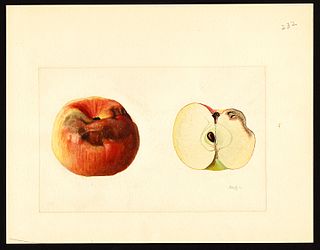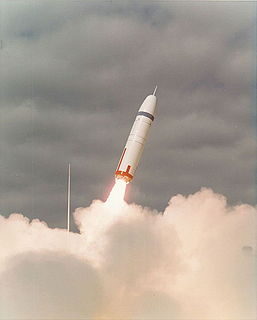 W
WThe use of war as metaphor is a longstanding literary and rhetorical trope. In political usage, war metaphors are used to manage a perceived societal problem, with the concept taking the place of an individual or state enemy in true war.
 W
WThe bad apples metaphor, originated as a warning of the corrupting influence of one corrupt or sinful person. Over time and alternatively, it has come to mean that one such person should not be seen as representative of the rest of a corporate body, although the full saying is "a few bad apples spoil the barrel". It is often used in the context of police misconduct.
 W
WBellum omnium contra omnes, a Latin phrase meaning "the war of all against all", is the description that Thomas Hobbes gives to human existence in the state-of-nature thought experiment that he conducts in De Cive (1642) and Leviathan (1651). The common modern English usage is a war of "each against all" where war is rare and terms such as "competition" or "struggle" are more common.
 W
WA catch-22 is a paradoxical situation from which an individual cannot escape because of contradictory rules or limitations. The term was coined by Joseph Heller, who used it in his 1961 novel Catch-22. An example is:"How can I get any experience until I get a job that gives me experience?" – Brantley Foster in The Secret of My Success.
 W
WHolocaust inversion is a phrase which is used to describe the portrayal of Jews as Nazis, crypto-Nazis, Nazi sympathizers, Holocaust perpetrators, or Holocaust "copycats." Whether this discourse is antisemitic when it is related to anti-Zionism is disputed.
 W
WICBM address or missile address is hacker slang for one's longitude and latitude when placed in a signature or another publicly available file.
 W
WThe New Testament uses a number of military metaphors in discussing Christianity, especially in the Pauline epistles.
 W
WA Pyrrhic victory is a victory that inflicts such a devastating toll on the victor that it is tantamount to defeat. A Pyrrhic victory takes a heavy toll that negates any true sense of achievement or damages long-term progress.
 W
WA trade war is an economic conflict resulting from extreme protectionism in which states raise or create tariffs or other trade barriers against each other in response to trade barriers created by the other party. If tariffs are the exclusive mechanism, then such conflicts are known as Customs wars, toll wars or tariff wars; as a reprisal, the latter state may also increase the tariffs. Increased protection causes both nations' output compositions to move towards their autarky position.
 W
WTug of war is a sport that pits two teams against each other in a test of strength: teams pull on opposite ends of a rope, with the goal being to bring the rope a certain distance in one direction against the force of the opposing team's pull.
 W
WChristmas is the Christian celebration of the birth of Jesus Christ, which, in Western Christian Churches, is held annually on 25 December. For centuries, it has been the subject of several reformations, both religious and secular.
 W
WThe militarization of police is the use of military equipment and tactics by law enforcement officers. This includes the use of armored personnel carriers (APCs), assault rifles, submachine guns, flashbang grenades, grenade launchers, sniper rifles, and SWAT teams. The militarization of law enforcement is also associated with intelligence agency–style information gathering aimed at the public and political activists and with a more aggressive style of law enforcement. Criminal justice professor Peter Kraska has defined militarization of police as "the process whereby civilian police increasingly draw from, and pattern themselves around, the tenets of militarism and the military model".
 W
WThe war on drugs is a global campaign, led by the U.S. federal government, of drug prohibition, military aid, and military intervention, with the aim of reducing the illegal drug trade in the United States. The initiative includes a set of drug policies that are intended to discourage the production, distribution, and consumption of psychoactive drugs that the participating governments and the UN have made illegal. The term was popularized by the media shortly after a press conference given on June 18, 1971, by President Richard Nixon—the day after publication of a special message from President Nixon to the Congress on Drug Abuse Prevention and Control—during which he declared drug abuse "public enemy number one". That message to the Congress included text about devoting more federal resources to the "prevention of new addicts, and the rehabilitation of those who are addicted", but that part did not receive the same public attention as the term "war on drugs". However, two years prior to this, Nixon had formally declared a "war on drugs" that would be directed toward eradication, interdiction, and incarceration. Today, the Drug Policy Alliance, which advocates for an end to the War on Drugs, estimates that the United States spends $51 billion annually on these initiatives.
 W
WThe war on poverty is the unofficial name for legislation first introduced by United States President Lyndon B. Johnson during his State of the Union address on January 8, 1964. This legislation was proposed by Johnson in response to a national poverty rate of around nineteen percent. The speech led the United States Congress to pass the Economic Opportunity Act, which established the Office of Economic Opportunity (OEO) to administer the local application of federal funds targeted against poverty. The forty programs established by the Act were collectively aimed at eliminating poverty by improving living conditions for residents of low-income neighborhoods and by helping the poor access economic opportunities long denied them.
 W
WThe war on terror, also known as the Global War on Terrorism and U.S. War on Terror, is an international military campaign launched by the United States government after the September 11 attacks. The targets of the campaign are primarily Sunni Islamic fundamentalist armed groups located throughout the Muslim world, with the most prominent groups being Al-Qaeda, the Islamic State, the Taliban, Tehrik-i-Taliban Pakistan, and the various franchise groups of the former two organizations. The naming of the campaign uses a metaphor of war to refer to a variety of actions that do not constitute a specific war as traditionally defined. U.S. president George W. Bush first used the term "war on terrorism" on 16 September 2001, and then "war on terror" a few days later in a formal speech to Congress. In the latter speech, George Bush stated, "Our enemy is a radical network of terrorists and every government that supports them." The term was originally used with a particular focus on countries associated with al-Qaeda. The term was immediately criticised by such people as Richard B. Myers, chairman of the Joint Chiefs of Staff, and more nuanced terms subsequently came to be used by the Bush administration to publicly define the international campaign led by the U.S. While it was never used as a formal designation of U.S. operations in internal government documentation, a Global War on Terrorism Service Medal was issued.